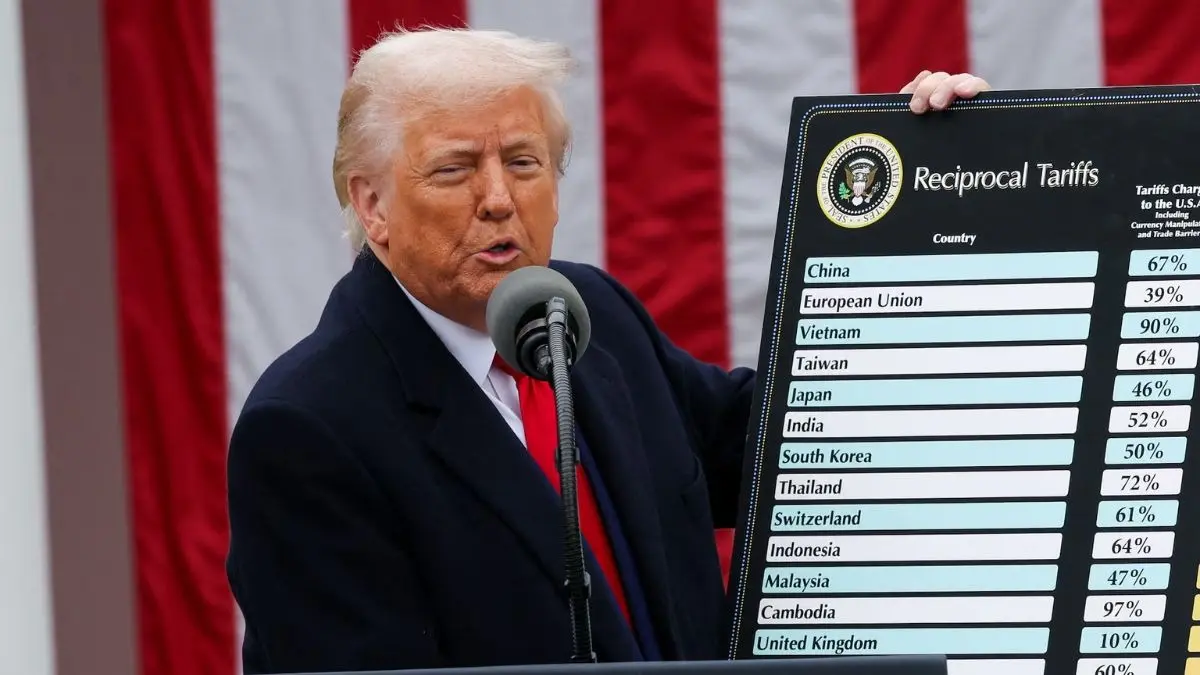Updated 5 April 2025 at 18:40 IST
Trump’s 10 Percent Tariff Takes Effect, Triggering Global Market Shock
Countries immediately hit with the new 10% import tax include the UK, Australia, Colombia, Argentina, Egypt, and Saudi Arabia.
- World News
- 2 min read

A new era in U.S. trade policy officially began at 12:01 a.m. ET Saturday, as Donald Trump’s sweeping 10% tariff on imports from dozens of countries—including close allies like the UK and Australia—came into force. Customs officials at U.S. ports, airports, and warehouses have begun collecting the new levies, which the president announced just 48 hours earlier.
The move marks a dramatic escalation in Trump’s latest trade war, with higher tariffs—ranging from 11% to as much as 50%—set to be imposed on goods from 57 key trading partners starting next week. This includes a 20% tariff on goods from the European Union and a 34% tariff on Chinese imports.
Global Markets React with Turmoil
The announcement triggered immediate financial shockwaves. In just two days, U.S. markets lost an estimated $5 trillion in value, with the S&P 500 suffering a record-breaking drop. Commodity prices, including oil, also plunged as investors sought refuge in government bonds.
“This is the single biggest trade action of our lifetime,” said Kelly Ann Shaw, a trade lawyer at Hogan Lovells and a former White House trade adviser. Speaking at a Brookings Institution event on Thursday, Shaw described the tariffs as a “seismic and significant shift in the way that we trade with every country on Earth.”
Advertisement
Who’s Affected?
Countries immediately hit with the new 10% import tax include the UK, Australia, Colombia, Argentina, Egypt, and Saudi Arabia. Starting Wednesday, the U.S. will roll out its higher “reciprocal” tariffs. The EU will face a 20% duty, while Chinese imports will be taxed at a total of 54%—a combination of previous and new tariffs.
Canada and Mexico are exempt from the current round of duties. However, they remain subject to a separate 25% tariff targeting goods linked to the U.S. fentanyl crisis that don’t meet U.S.-Mexico-Canada trade rules.
Advertisement
What Comes Next?
Shaw and other experts predict that countries affected by the tariffs will begin lobbying for individual deals to reduce their rates. “Over time,” she said, “this will evolve as countries negotiate lower rates, but right now the change is huge.”
While Trump’s team argues that the tariffs will protect American industries and generate revenue, critics warn the result will likely be higher prices for consumers and increased global economic instability.
As the world watches closely, one thing is clear: global trade as we know it has entered uncharted territory.
Published By : Sagar Kar
Published On: 5 April 2025 at 18:40 IST
